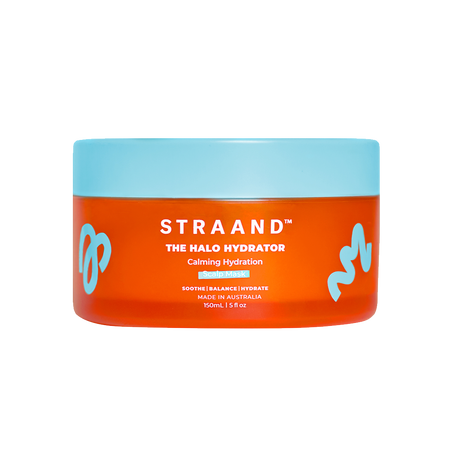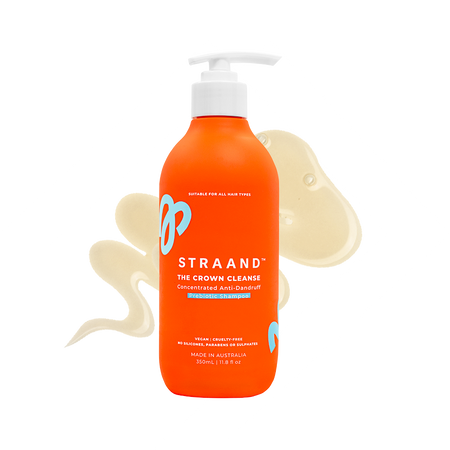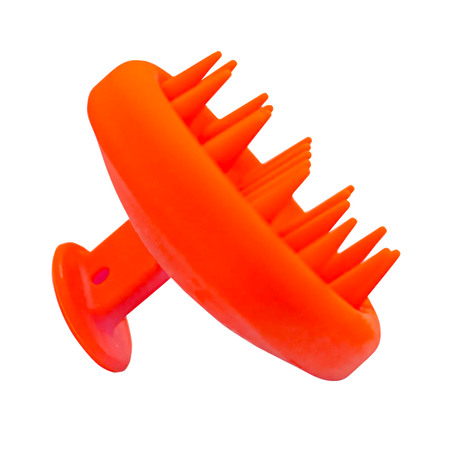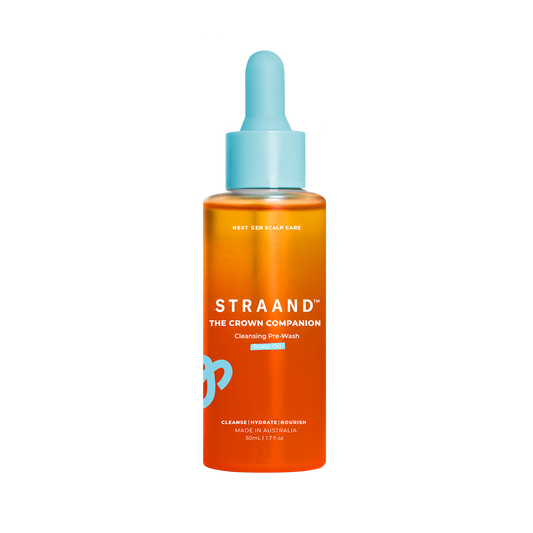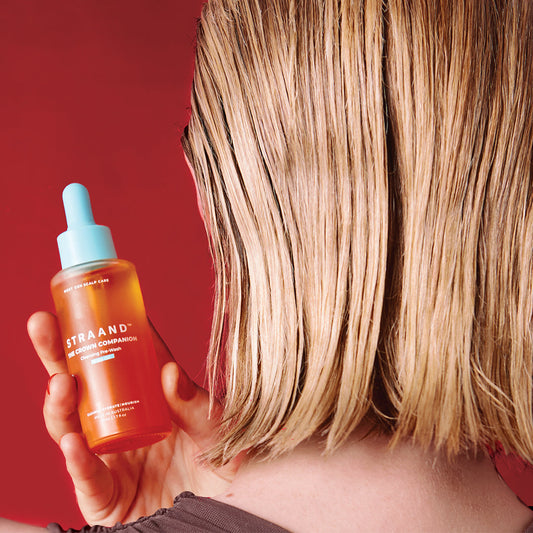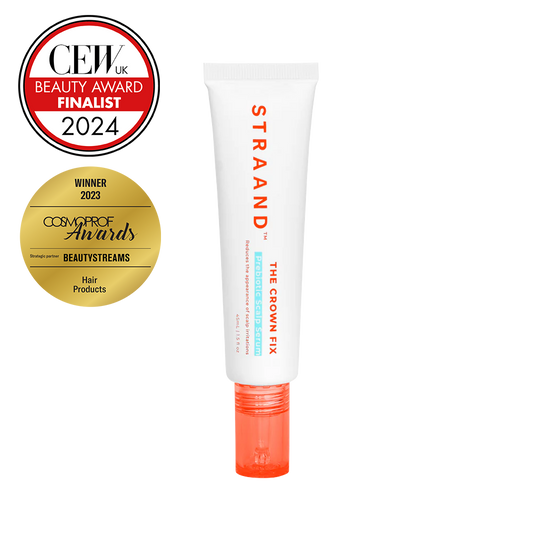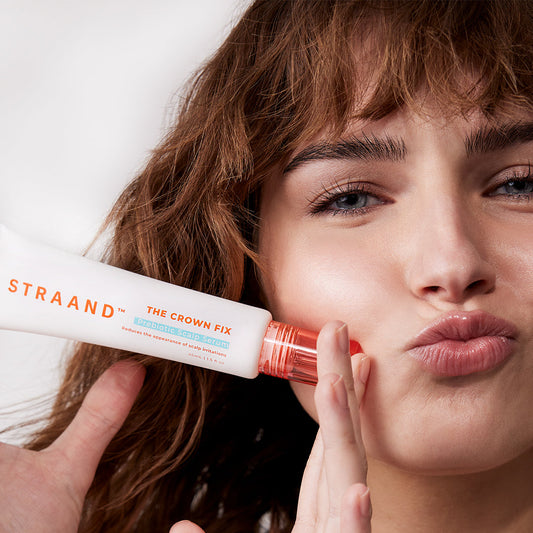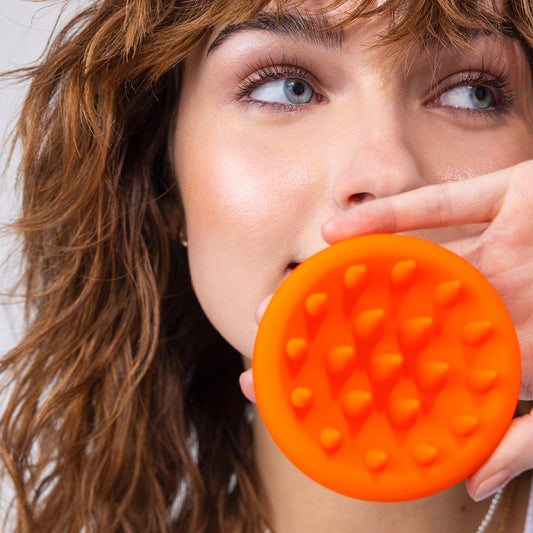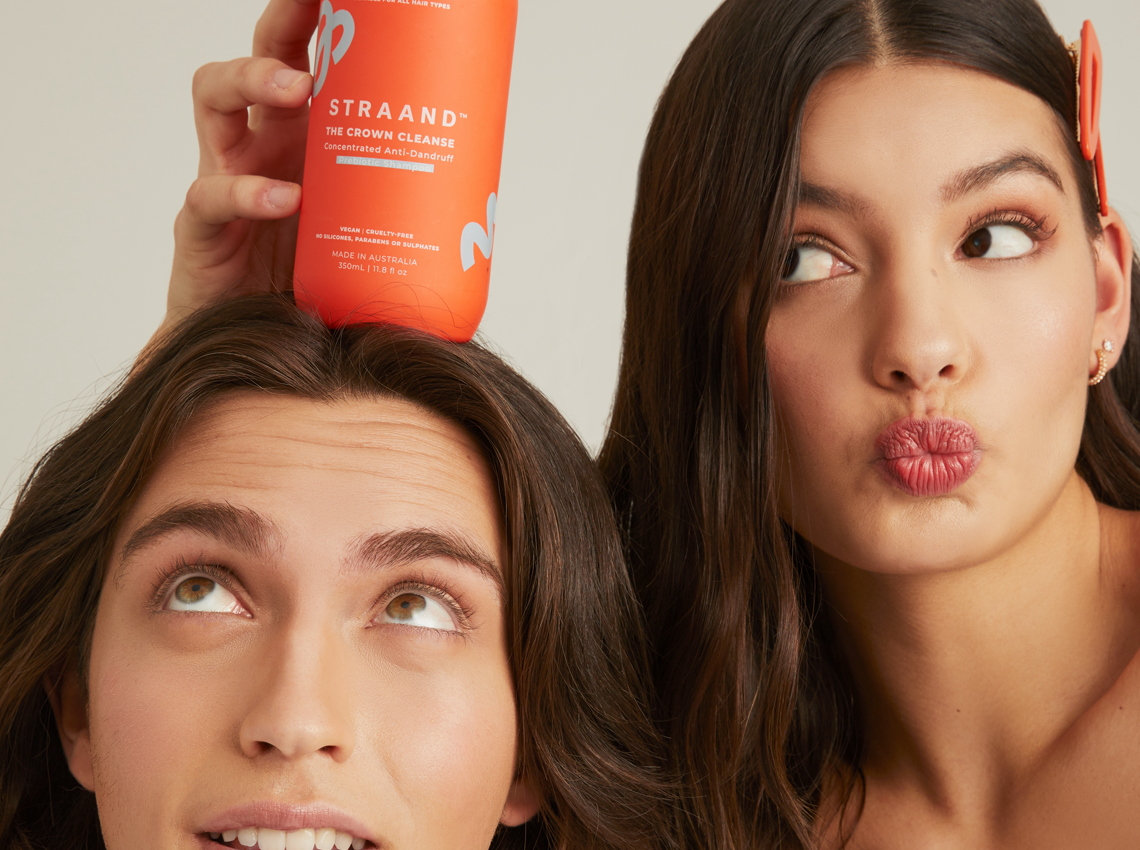Dandruff is no fun — it’s an itchy, irritating condition that can become extremely bothersome if left untreated. If you’re plagued by the scalp flake, we know you’ll be itching to find a solution to keep them at bay for good. Fortunately, there are a number of things you can do to keep your scalp healthy and hydrated. Let’s take a look at how to get rid of dandruff in men’s hair.

What is Dandruff?
Dandruff is a mild form of seborrheic dermatitis (SD).
SD is a chronic type of eczema that typically affects areas of the body that are full of sebaceous (oil-producing) glands. The scalp is one of these areas.
On the spectrum of SD presentations, dandruff is on the milder end. It’s an uninflamed form of SD that appears on the scalp.
What Causes Dandruff In Men’s Hair?
There are a few different reasons why your scalp may start to flake. Understanding what’s happening up top will help to inform your treatment.
Fungi Sensitivity
Dandruff is most commonly triggered by an overgrowth of fungus on the scalp.
We know this sounds gross, but we’re here to tell you not to scrub your scalp raw in an effort to remove the fungus.
Everyone has fungus on their scalp — it’s totally natural. It’s just that the scalps of dandruff sufferers go a little overboard in reacting to this fungus.
Some people’s skin becomes irritated when this interaction occurs, and the oleic acid triggers an immune system response. This causes our scalp to shed the irritated skin at a quicker-than-normal rate, and produce new skin cells to replace the old ones.
Excessively Oily Skin
We know that fungi feed on the oils on our scalp which causes dandruff. So, oily skin can cause dandruff.
You’ll know your dandruff is caused by excess oil production if the flakes feel greasy rather than dry.
People with a particularly oily skin type may develop a more severe form of SD, which usually presents as a red, scaly, and greasy scalp in addition to dry flakes.

Overly Dry Skin
On the other hand, overly dry and sensitive skin can also cause dandruff.
A lack of moisture on the scalp can lead your scalp microbiome to become imbalanced, and the result is dandruff.
When dandruff is caused by dry skin rather than a Malassezia sensitivity, the flakes on your scalp tend to feel dry rather than oily.
Humid Weather
Sometimes, the external environment is the culprit of your scalp-woes.
Fungi love warm, wet environments, so your scalp, eyebrows, and beard feel like home to fungi when you’re in a humid climate.
While the weather itself doesn’t directly cause dandruff, humid weather can cause sweat and oils to build up, which aggravates the skin and invites Malassezia in to do its thing.
Dry, Cold Weather
We wish we were kidding, but it’s true — dry, cold weather and humid weather can worsen dandruff symptoms.
In the depths of winter, you’re more likely to experience dry skin all over your body. A dry, dehydrated scalp lacks the structure and nutrients it needs to stay healthy, which means flakiness often worsens during these months.
So, is your scalp truly ever safe from the elements? Generally, mild spring and autumn temperatures are kinder on the scalp.
Contact dermatitis is a condition that occurs when the skin is irritated by an allergen or external agent. Think haircare products or dyes.
It usually presents as an itchy or painful rash. When this rash appears on the scalp, it can lead to dandruff.
Certain Illnesses and Conditions
Some skin conditions, like psoriasis and eczema, can lead to or worsen dandruff symptoms. Other conditions unrelated to the skin but weaken the immune system — such as HIV, epilepsy, and Parkinson’s Disease — can also cause dandruff.
Do Bald Men Get Dandruff?
Sorry, guys — you don’t need to have hair to suffer from dandruff.
It feels unfair, we know, but as long as you’ve got a scalp, you’ve got a breeding ground for dandruff.
It’s not all bad news; bald people are actually less likely to suffer from severe SD because hair is usually responsible for trapping oils onto the scalp and causing severe inflammation.
However, the other causes mentioned above — having overly oily or dehydrated skin, temperamental weather, contact dermatitis, and other medical conditions — can all cause dandruff in bald people.
Additionally, bald scalps risk over-exposure to the sun. This means bald people are more susceptible to sun damage and dryness, which can cause dandruff.
So, what’s a bald guy to do about dandruff? Fortunately, the same treatments recommended for guys with hair are also appropriate for guys without hair. Let’s take a look at what these treatments entail.

How to Get Rid of Dandruff in Men
Wondering how to treat dandruff in men? We’ve got you covered.
There’s no need to put up with those pesky white flakes any longer. Itching and flaking can be effectively controlled through a few different methods. Mild to moderate dandruff can usually be treated using non-medicated interventions, while more severe forms may require medication.Dandruff Treatment for Men
The below strategies can help to rid your hair of dandruff and keep your scalp microbiome healthy, balanced, and hydrated.
Opt for a Scalp-Restoring Shampoo
Remember, dandruff is a scalp condition, so your regular run-of-the-mill shampoo likely isn’t doing enough to address your scalp issues.
Regularly washing your hair with a shampoo that works to rebalance your scalp microbiome and fight dandruff is the first step to getting your scalp back on track. Unfortunately, many commercial haircare products focus only on the hair and neglect the scalp, which is where the issue really begins.
As we know, our scalp is home to a range of bacteria and fungi that feed on the hair’s natural oils. It’s important to choose a shampoo containing prebiotics that works to rebalance your scalp microbiome and strengthen the surface layer of the skin.
Our Crown Cleanse Shampoo is designed to do just that. Thanks to the power of prebiotics, this shampoo helps to target the root cause of your dandruff while cleansing and hydrating the scalp. It’s basically skincare for your scalp.
It’s also vegan and free of silicones, sulphates, and parabens, so it’s full of no nasties — only the good stuff!
Protect Your Scalp from UV
When you’re out in the sun, make sure you’re protecting your scalp from UV damage by wearing a hat and sitting in the shade, where you can.
If you’re bald, this is particularly important. Make sure to put on some sunscreen as well as a hat to protect your scalp from skin damage, dryness, and, most importantly, skin cancer.Give Your Scalp Some Breathing Room
While it’s important to protect your scalp when under those UV rays, it’s equally important to give your scalp some breathing room when you’re in the shade.
Avoid wearing a hat all day, every day, as this can create moisture build-up, which worsens dandruff symptoms.
Give your scalp some air every day to keep the moisture at bay.
Wash Your Hair Regularly
Generally, if you have a scaly scalp, you should be shampooing everyday or every other day.
Going too long in between washes can lead to a buildup of oil and bacteria which can worsen your symptoms.
Be sure to pop on a conditioner at the end of your shampooing routine to prevent excessive drying due to frequent washing,
Stimulate Your Scalp
Not only does it feel incredible, but a scalp massage does wonders for your scalp health.
Giving your head a good ol’ massage with our Scalp Brush will help to remove dead skin cells and relieve extreme itchiness, as well as stimulate your hair follicles.

It’s especially effective if you use it to massage your shampoo into your scalp. This helps to really get into the dandruff-causing oil and bacteria on the scalp, so you’ll be left with the deepest clean.
Avoid Dying or Oily Products
Avoid using hair sprays or gels that dry and flake during the day, as this can worsen the ‘flaky’ look.
In the same vein, it’s best to avoid products with an excessively oily base (think oily hair waxes) as these may further irritate the scalp.
Instead, look to hydrating, lightweight water-based creams, gels, and serums that can help to repair a dry or irritated scalp.
Eat Dandruff-Fighting Foods
While your diet is unlikely to be the cause of your dandruff and won’t clear up the condition, eating certain foods can help to keep the levels of fungi in your body balanced.
Eating foods containing good bacteria (known as probiotics) can help to fight the build-up of yeast and bad bacteria that cause dandruff. Foods such as kimchi, yoghurt, and sauerkraut are great options.
Foods rich in omega-3 fatty acids are also great for your scalp health, as they protect against dry skin and inflammation (both of which can cause dandruff).
They help to lock in hydration, which is particularly important in winter when skin dryness is common. Foods high in omega-3 include oils, nuts, and fish.
Consider Medicated Treatments
If you have aggressive dandruff or you believe you might be suffering from a more severe form of SD, it’s important to chat with your doctor or dermatologist.
They may recommend a medicated or prescription-strength product or steroid lotion to get the condition under control. They will also be able to help manage your long-term treatment.Bid Dandruff Farewell For Good
So, we know that the main causes of dandruff are sebum buildup, sensitivity to the fungi that live on the scalp, overly dry or humid weather, and certain illnesses.
As for how to get rid of dandruff in men’s hair, there are a few things you can do to rebalance your scalp microbiome. Firstly, be sure to use a scalp-restoring, dandruff-fighting shampoo that contains pre-biotics.
It can also help to protect your scalp from UV, give your scalp some air during the day, treat yourself to a scalp brush massage, and avoid oily or drying products.

